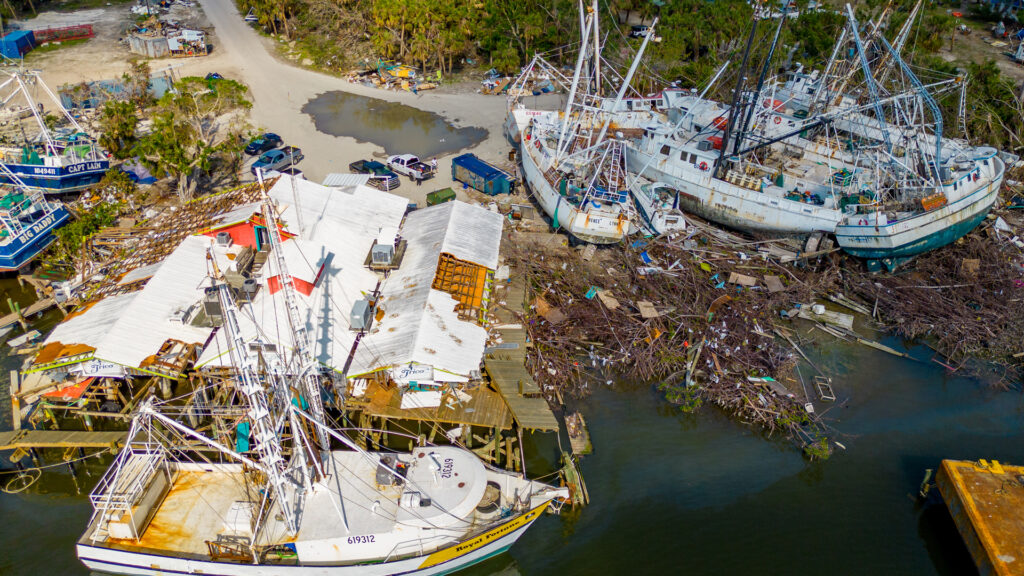By Dave Trecker, Collier Citizens Council
Resiliency is a hot topic these days, applying to everything from hurricane recovery to protection against climate change. It applies in spades to Florida, the flattest state in the country with 1,350 miles of coastline and 76% of its residents living in coastal communities. Storms and flooding put up to a trillion dollars of property at risk.
Thomas Jeffrey of CoreLogic says, “Of all natural disasters, storm surge has historically been the deadliest and most destructive hazard we deal with.”
That applies particularly to Southwest Florida, as we learned with Hurricane Ian. Beaches were washed away and thousands of structures were destroyed. Flooding extended well inland. Property values declined and insurance rates went through the roof.

Riskfactor.com says the Naples area has 6,700 properties with a chance of being severely damaged by floods over the next 30 years. CoreLogic says greater Naples is the 9th in the country at greatest risk from coastal storms, with a reconstruction cost value of $43 billion.
And shoreline resiliency extends well beyond water incursion. There are also problems from toxic algae, red tide and inland pollutants that foul the coast.
The vulnerability is real and the risks are many. How do we provide protection and, more important, resilience? We currently have a patchwork of agencies and self-appointed organizations offering advice and dealing with parts of the problem. That includes numerous departments in city and county government, regional “waterkeepers,” the Conservancy of Southwest Florida and others — all competent and well meaning, but fragmented.
The Rockefeller Foundation has suggested another approach. Recognizing the stress facing communities around the world, it established the “100 Resilient Cities” program in 2013, an initiative that morphed into the Resilient Cities Network, a movement that’s active today.
Central to it all was the establishment of the chief resilience officer (CRO), one person dedicated to coordinating the whole thing.
Gov. Ron DeSantis got on board early and appointed a Florida CRO in 2019. Wesley Brooks, Ph.D., serves in that capacity today. Scores of local CROs have since been hired and serve in cities and counties around the state.
Would a CRO be beneficial to Collier County? Most probably.
Imbedded in county government and reporting to the county manager or deputy county manager, the CRO would be the point person on shoreline resilience, providing advice and coordinating efforts. He or she would consolidate plans, discourage redundancy and expedite programs, working closely with relevant city and county departments.
This would be a standalone position. Adding another layer of government bureaucracy is neither recommended nor needed.

The focus would be solely on the shoreline. Inland resilience would not be part of the CRO’s remit. Rather he or she would deal with things like building codes, property protection, drainage, tidal lagoons, diversion canals, building and roadway elevation, beaches and mangroves. Experts would be consulted as needed and, where appropriate, grants would be sought.
The highly publicized U.S. Army Corps of Engineering study — unlikely to deliver anything before 2030, if approved at all — would be monitored as part of the overall program.
It would seem establishing a Collier County CRO would be a useful step toward protecting the shoreline.
The Collier Citizens Council plans to take a closer look.
Dave Trecker, Ph.D., is a cofounder of the Collier Citizens Council, a coalition of civic leaders whose purpose is to represent the interests of county residents by influencing local and state policies. This opinion piece was originally published by the Fort Myers News-Press, which is a media partner of The Invading Sea.
If you are interested in submitting an opinion piece to The Invading Sea, email Editor Nathan Crabbe at nc*****@*au.edu. Sign up for The Invading Sea newsletter by visiting here.



